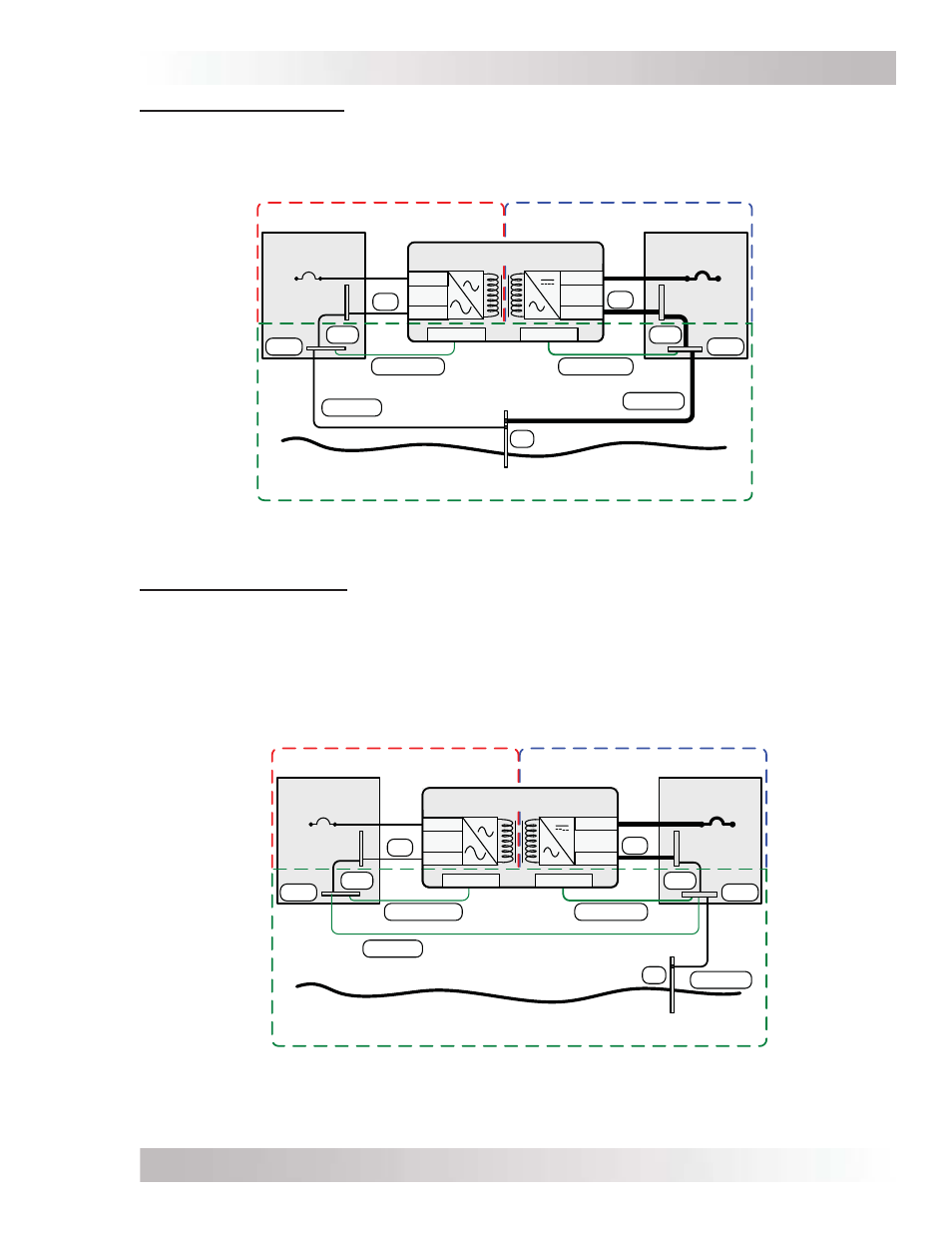Installation – Magnum Energy MS Series User Manual
Page 45

Page 36
©
2012 Magnum Energy, Inc.
Installation
Method 2 (Figure 2-18): When the AC and DC service panels are near each other, then the AC
grounding electrode conductor (GEC – AC) and DC grounding electrode conductor (GEC – DC) can
be connected to a single grounding electrode. In this method—since there are multiple connections
to the DC grounding electrode (GEC – DC)—the size of the DC grounding electrode conductor cannot
be smaller than the largest conductor in the DC system (usually the battery-to-inverter cable).
AC
DC Service
Panel
AC Service
Panel
DC Electrical System
AC Electrical System
Neutral
Positive
Negative
DC
Grounding
System
Negative
SBJ
GC
GE
GEC-AC
EGC - AC
AC Ground
DC Ground
SBJ
EGC - DC
GC
Neutral
Hot
GEC-DC
GBB
GBB
Grounding Electrode
(AC and DC sides shared)
MS Series Inverter/Charger
Figure 2-18, Multiple Connections to DC Ground Rod (Method 2)
Method 3 (Figure 2-19): The AC grounding electrode conductor (GEC – AC) is bonded to the
DC ground point and the DC grounding electrode conductor (GEC – DC) is the only connection to
the grounding electrode, which must be a rod, pipe, or plate electrode.
In this method, since there is only one connection to the ground rod, the DC grounding electrode
conductor is not required to be larger than #6 AWG (13 mm
2
) copper. The reasoning for allowing
this smaller grounding electrode conductor is that it is only required to stabilize the system voltage
with respect to earth, and the other properly-sized conductors in each electrical system will safely
carry any fault currents if they occur.
AC
DC Service
Panel
AC Service
Panel
DC Electrical System
AC Electrical System
Neutral
Positive
Negative
DC
Grounding
System
Negative
SBJ
GC
GEC-AC
EGC - AC
AC Ground
DC Ground
SBJ
EGC - DC
GC
Neutral
Hot
GEC-DC
GE
GBB
GBB
Grounding Electrode
(DC side dedicated)
MS Series Inverter/Charger
Figure 2-19, Single Connection to DC Ground Rod (Method 3)
